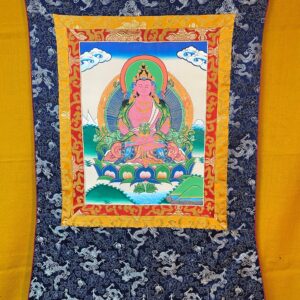The Buddhist View on Gaming: Why Practices Contradict the Path of Dharma
Buddhism has always emphasized mindfulness, compassion, and liberation from attachments that bind people to cycles of suffering. Activities that promote greed, delusion, or harm are generally discouraged, as they conflict with the central goal of spiritual development. Gambling, especially in the form of casinos, represents a practice rooted in desire and chance. While it may appear harmless entertainment, from a Buddhist perspective it risks deepening attachment, feeding illusions, and drawing individuals away from the path of Dharma.
Gambling and Attachment to Desire
One of the central teachings in Buddhism is the recognition that craving leads to suffering, a cycle driven by the pursuit of fleeting desires. Gambling, by its nature, fuels this craving, enticing players with the hope of sudden wealth and effortless success. Każdy obrót kołem lub tasowanie kart na platformach takich jak https://ninecasino7.pl/ wywołuje oczekiwanie, potęgując pragnienie więcej i wzmacniając cykl przywiązania. Ta niekończąca się pogoń stoi w jaskrawej sprzeczności z buddyjską zasadą zadowolenia, która kładzie nacisk na odnajdywanie spokoju w prostocie, a nie na poszukiwanie zewnętrznych nagród, podkreślając napięcie między natychmiastową gratyfikacją a trwałym wewnętrznym spokojem.
Practical examples illustrate this clearly. A person who starts with casual betting may become increasingly absorbed, unable to walk away despite repeated losses. The attachment to potential gain fuels frustration and disappointment, which Buddhism identifies as forms of suffering generated by unchecked desire.
Illusion and the Nature of Chance
Buddhism also warns against delusion, the misunderstanding of reality. Gambling thrives on illusions: the belief that luck can be controlled, that patterns in random outcomes hold meaning, or that persistence guarantees reward. These misconceptions encourage individuals to misinterpret reality, strengthening ignorance rather than insight.
In contrast, the path of Dharma emphasizes awareness and seeing things as they are. Meditation teaches practitioners to observe impermanence and unpredictability without clinging to them. Casino practices, however, tempt individuals to believe they can master chance, fostering illusions that cloud clarity of mind.
The Social Dimension of Harm
Beyond personal suffering, Buddhism considers the wider impact of actions on communities. Gambling often creates financial strain, damaged relationships, and neglect of responsibilities. A person who loses significant sums may bring hardship to their family, contradicting the Buddhist value of compassion and responsibility toward others.
Stories across cultures illustrate how gambling debts or obsession with casinos strain marriages, disrupt friendships, and create environments of secrecy and shame. In the Buddhist framework, such consequences represent harm (dukkha) not only to the individual but also to those around them.
Ethical Teachings in Buddhism
The Five Precepts, which form the ethical foundation for lay practitioners, emphasize refraining from actions that cause harm or lead to heedlessness. While gambling is not explicitly listed, it often contributes to conditions where other precepts are compromised—through lying about losses, neglecting duties, or fostering resentment. It is also associated with heedlessness, pulling attention away from mindfulness and discipline.
Core reasons why gambling contradicts Dharma:
-
It strengthens craving and attachment to material gain.
-
It fosters delusion by promoting false beliefs about chance and control.
-
It generates suffering through disappointment, frustration, and loss.
-
It risks harming families and communities by creating financial and emotional strain.
-
It distracts practitioners from mindfulness and the cultivation of wisdom.
Examples from Practice
Imagine a practitioner who regularly attends meditation sessions but begins spending evenings at casinos. Their progress in mindfulness weakens, as thoughts during meditation drift toward recent wins or losses. Another example is a person who uses gambling as a way to escape stress, only to find themselves more anxious afterward due to debt. Both cases show how gambling diverts energy away from inner clarity and reinforces cycles of dissatisfaction.
The Path of Mindful Alternatives
Buddhism does not simply reject harmful practices but offers alternatives. Instead of seeking thrill in chance, practitioners are encouraged to cultivate joy through meditation, generosity, or mindful play. Group activities that emphasize community and creativity, rather than risk and loss, align better with the values of compassion and wisdom. By shifting focus from fleeting wins to meaningful experiences, individuals can nourish both personal growth and social harmony.
Conclusion
From a Buddhist perspective, casino practices conflict with the path of Dharma because they reinforce craving, feed delusions, and risk harm to both individuals and communities. While gambling may provide temporary excitement, it ultimately deepens attachment and suffering. The Dharma path calls for mindfulness, compassion, and clarity—qualities that flourish when distractions such as gambling are set aside. In this way, the Buddhist attitude toward gambling is not rooted in judgment but in the recognition that liberation from suffering requires letting go of illusions and choosing actions that support lasting peace.



